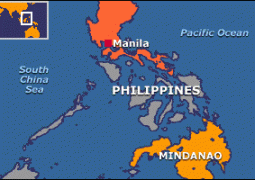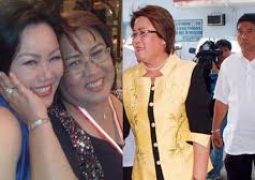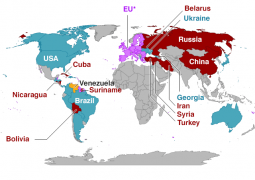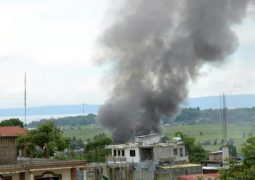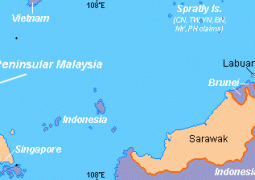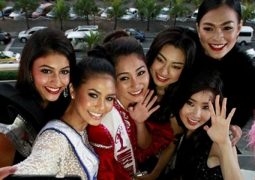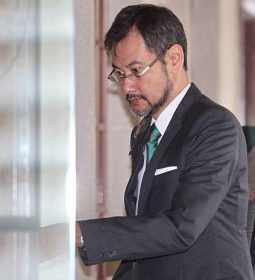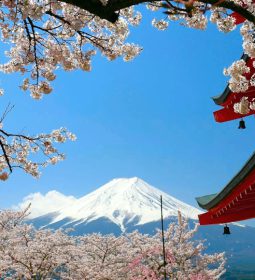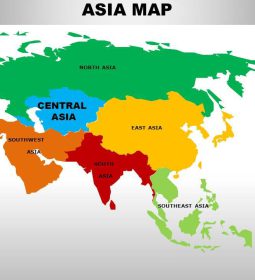Two plain-clothes police officers beaten up, tear gas fired and rally organiser arrested in Central Hong Kong
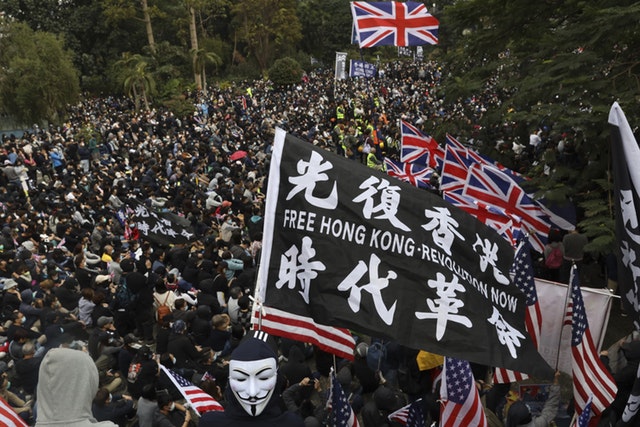
Hong Kong protests: two plain-clothes police officers beaten up, tear gas fired and rally organiser arrested as mayhem breaks out in Central
- Several rounds of tear gas fired after police shut down event in Central while eight people arrested for possession of extendable batons, hammers and spanners
- Protesters in Chater Garden had urged foreign governments to consider sanctions against Hong Kong administration if democracy demands not met
Hila Siu, Alvin Lum, Zoe Low
Two plain-clothes policemen were surrounded and twice beaten up by protesters in Hong Kong on Sunday as officers tried to call an early end to a rally in the business district, resulting in several rounds of tear gas being fired and the arrest of the organiser of the demonstration.
Thousands took part in the police-approved protest in Chater Garden, Central, at 3pm, to demand electoral reforms for September’s legislative elections and urge the international community to impose sanctions on the Hong Kong government if their calls were snubbed.
But the day descended into mayhem when police declared the rally over after skirmishes between protesters and officers nearby.
Tear gas and arrests as Hong Kong rally for universal suffrage descends into chaos
The first scuffles broke out when police held a man to the ground in Des Voeux Road Central, drawing an angry response from protesters who then surrounded the officers.
Eight people were arrested in the area for possession of extendable batons, hammers and spanners. The force said it believed those detained had plans to create chaos.
A group of radical black-clad protesters first set upon a police liaison officer about an hour after the rally started after he spoke to the organiser, Ventus Lau Wing-hong. He fell to the ground as heavy blows rained down on him, including from a protester’s metal baton. A colleague who came to his aid was also beaten. The pair managed to flee across the road but were again attacked as they tried to get into a nearby office tower.
“At around 4pm today, while two officers of the police community liaison office were liaising with the organiser of a public event in Chater Garden, Central, they were suddenly surrounded and beaten up brutally by a large group of rioters with wooden sticks and other weapons,” police said in a statement.
“They were left with bloody injuries to the head. Such appalling acts are not to be condoned. The police will endeavour to bring the assailants to justice.”
In another statement, the force said protesters threw water bottles at them when they were intercepting people in the area.
Hard-core protesters set up barricades on roads and dug up paving bricks, police said in explanation of their decision to shut down the rally.
Officers used pepper spray on protesters and several rounds of tear gas were fired. A police water cannon and armoured vehicle were moved into Central amid the chaos. But they were not used.
Lau, a spokesman for Hong Kong Civil Assembly Team, which organised the rally, was arrested immediately after speaking to reporters in the evening. Police accused him of inciting the crowd and violating one of the rules in the force’s letter of no objection for the rally, that protesters could not overcrowd Chater Garden, Lau’s group said.
Zion Lam, another spokesman from the group, denied the accusations and said there was still space in Chater Garden. The organiser had even asked those at the rally to leave to make room for other protesters to get in, Lam added.
Before his arrest, Lau said police should bear full responsibility for the day’s chaos.
He said a man in plain clothes who identified himself as an officer asked him to cut short the rally because there were clashes nearby. Lau demanded he show his warrant card.
“The officer refused to display his warrant card until the crowd became too emotional. By then, the situation had become too hard to control,” Lau said. “I told him that as long as he showed me his warrant card, I would end the rally.”
A large crowd of protesters surrounded the officer, who then showed his warrant card. He and another plain-clothes officer were then beaten up by radicals.
Lau claimed that at least 150,000 people took part in the rally, while police put the turnout at 11,680 at its peak. After the rally was brought to an end, police ordered those in the area to leave immediately or be arrested. Some were rounded up.
In a police briefing on Sunday night, Senior Superintendent Ng Lok-chun said the two assaulted officers were left with “serious and bloody injuries”.
“This happened in broad daylight, right in front of the event organiser himself. We once again strongly condemn rioters for launching such violent attacks on our officers,” he said.
He added that the rally organiser was acquainted with the officers, and so it was “ridiculous” that Lau claimed he did not know them. Lau was arrested for contravening the conditions on the police’s letter of no objection and for repeatedly obstructing the officers in carrying out their duties.
A total of four officers were injured on Sunday, Ng said. He did not elaborate on the other two officers.
Asked why officers held up the identity card of a Stand News reporter in front of his camera while he was doing a live broadcast on Sunday afternoon, Ng said he did not have information on the incident.
But Privacy Commissioner Stephen Wong Kai-yi said his office was looking into the incident in a fair manner along with a similar case in Tai Po earlier.
In a late-night statement, a government spokesman said it strongly condemned protesters’ “outrageous” attacks on officers with no anti-riot equipment.
Separately, the force said four petrol bombs were hurled at the reporting room and car park of Tai Po Police Station at about 8pm. No one was hurt but services at the reporting room were suspended.
Later on Sunday night, riot police were back on the streets, this time in Mong Kok, a popular shopping and entertainment area in Kowloon. In a game of cat and mouse, protesters tried to block traffic, throwing bags of rubbish and other items close at hand onto roads, as police raced through the streets after them.
Police raised a blue flag, warning protesters they were taking part in an illegal assembly, a number of times. Officers also used pepper spray, at one point firing on a group of people, including reporters, gathered on the pavement.
Sunday afternoon’s demonstration, the second in a row pushing for more democracy, was held as protests, sparked in June by the now-withdrawn extradition bill, entered their eighth month.
The movement has morphed into a wider anti-government campaign, with protesters issuing five demands, including the establishment of a judge-led independent inquiry into the police’s use of force.
Lau said the government must scrap the functional constituencies of the Legislative Council, which return 35 lawmakers to the 70-seat legislature and have long been criticised. Voting for the functional constituencies, except for five “super seats”, is restricted to those from certain trades and professional sectors.
“The first time I heard about the calls for universal suffrage, that was in 2007 and 2008. People have then been calling for it in 2012, 2017, and we’re now already in 2020,” Lau, 26, told the crowd.
“We have had a lot of peaceful demonstrations … but has the government ever listened?” The protesters responded with a resounding “no”.
Lau added: “We’re not just here to protest today. We’re here to revolt, to exact revenge [for government inaction].”
Some rally-goers waved US national flags and banners calling for Hong Kong independence.
In November, US President Donald Trump signed into law legislation that could bring diplomatic action and economic sanctions against Hong Kong, waving off multiple warnings by China against such a move.
Protester Serah Kwong, a retired secondary school teacher in her late 50s, said she knew of teachers who were worried about retribution from their schools for supporting the protest movement.
“This oppression may happen to all professions. That’s why we hope there will be more interventions from foreign countries,” Kwong said, referring to sanctions from foreign governments.
“This is the only way to keep up with the pressure.”
The rally started peacefully before pockets of fighting between police and radical protesters broke out in the area. Photo: Sam Tsang
Earlier this month, Hong Kong’s education minister Kevin Yeung Yun-hung warned that teachers’ personal remarks on social media were regulated by the law and a professional code of conduct and those who behaved inappropriately should face consequences.
Another protester, office worker Andy Chan, joined the rally because he was angry at police’s use of force at previous protests.
“We have to make sure the five demands are fulfilled, in particular the demand to investigate police brutality,” the 25-year-old said, adding that international sanctions were the only solution left when the Hong Kong government had failed to respond.
Meanwhile, the Transport Department said repairs and testing of the e-payment facilities for all nine manual toll lanes of the Cross-Harbour Tunnel had been completed and would resume operation from 7am on Monday. The facilities were damaged two months ago amid violent protests.
This article appeared in the South China Morning Post print edition as: Two officers beaten as rally ends in chaos
- Previous Indian General Talks of ‘Deradicalization Camps’ for Kashmiris
- Next Why Turkey’s Libya commitment angers Arab nations



